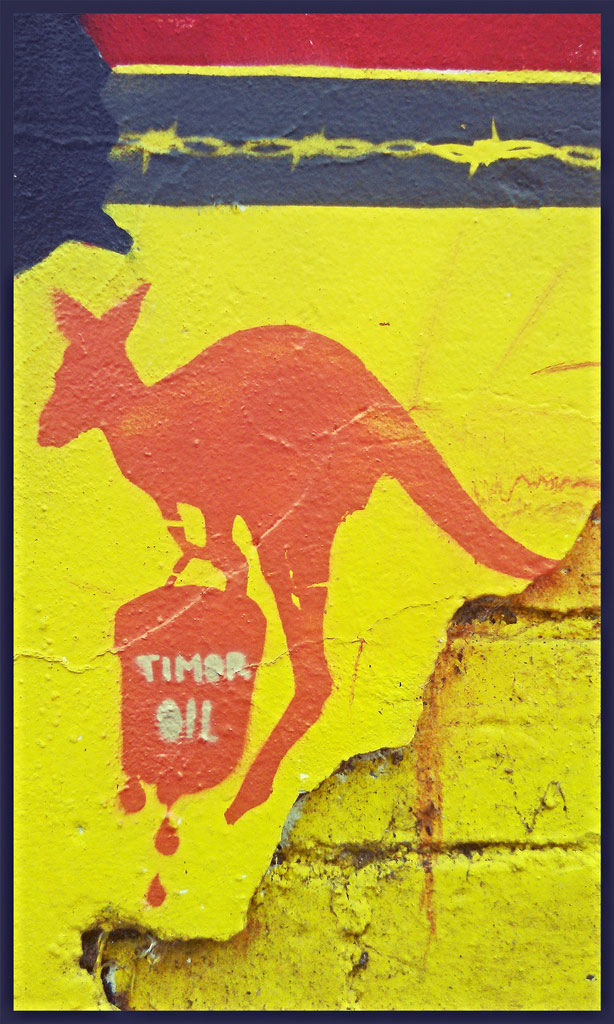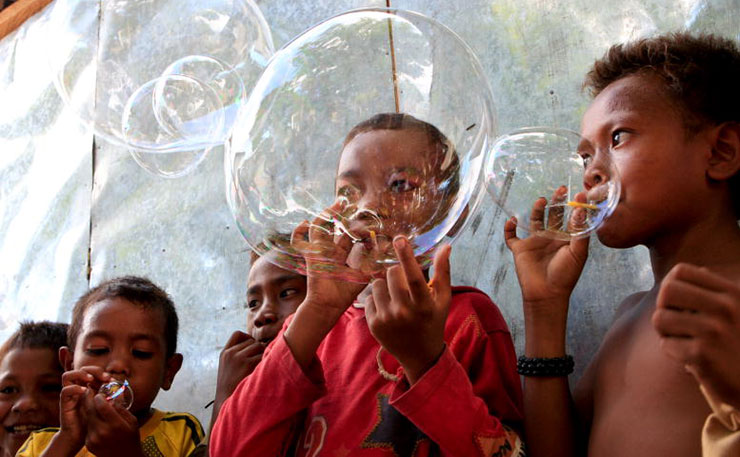As one of our closest – and poorest – neighbours marks 14 years of independence, Australia is still stealing their natural resources. Ella Fabry explains.
Tomorrow, November 28, one of the world’s newest nations, Timor Leste, will celebrate the anniversary of its declaration of independence from foreign rule. It’s unfortunate that against that backdrop of pride and celebration, Timor continues to fight for self-determination and economic security against a much wealthier neighbour.
It should come as no surprise that this neighbour is Australia, and that Australia has been trashing international law for 14 years, at the expense of a much poorer nation. In recent history, Timor has been occupied by two foreign powers – Portugal and Indonesia – before finally being declared independent in 2002. A few weeks before independence, Australia withdrew its recognition of the maritime boundary jurisdiction at the International Court of Arbitration.
This is a wordy way of saying that Australia realised the rules might prevent them from accessing resources in the Timor Sea, so they decided to claim that they didn’t recognise the rules any more. The resulting negotiations – free from any sort of independent arbitration – have created a situation where Timor does not have a permanent maritime boundary, Australia is missing 1.8 per cent of its boundary, and large chunks of resources that lie entirely on Timor’s side of the ocean are being harvested by a country that should, in any event, be severely limiting its use of fossil fuels.
Instead, Australia is focussed on taking East Timor’s oil.
There is a significant amount of money at stake in this dispute. The last treaty signed by Australia and Timor (which is currently being examined by the Permanent Court of Arbitration) stipulated a 50/50 split of any revenue from the Greater Sunrise Field. This field is as yet completely undeveloped, and it’s projected to be worth around $40 billion (USD) over 20 years.
To put that into some kind of perspective, Timor’s Gross Domestic Product in 2015 was just over $1.4 billion. Australia’s was $1.34 trillion.
For Australia, the difference between accessing the Greater Sunrise field or not is significantly less than 1 per cent of its annual revenue. For Timor, the difference is the potential to almost double revenue, to be able to significantly increase spending in health and education programs and significantly reduce still high infant mortality rates over the next 20 years. But more than these visible results, it provides Timor with the economic security that is needed to invest and create other revenue streams in the future.

On top of this, the relationship between Australia and Timor has long been a policy area where public opinion and government policy are at loggerheads. In 1999, a diverse range of Australians campaigned to send Australian Peacekeepers to Timor to assist with the transition to independence. Many Australians disagreed with the boundary negotiations in 2002, and in 2005 when Australia was back at the negotiating table, thousands of Australians chipped in to put ads on television about the issue.
Even now, with very little coverage in the mainstream media or by any political party, Australians remain aware and supportive of Timor. Anecdotally, since I started working on this issue I’ve discussed it with friends and family of highly variant levels of political engagement. All of them had at least a basic understanding of what the issue was as soon as I mentioned “the Timor Sea” and “oil”. This experience is backed by recent polling suggesting that the majority of Australians understand the issue enough to want it to be resolved in conjunction with international law.
Rarely do we see international issues where political opinion and political action are so polarised.
Most of all, this is an issue of fairness. Look at the map of the oil and gas fields and draw a line halfway between Australia and Timor. The resources are on their side.
Prior to Timor’s independence, Australia signed resource sharing agreements in the Timor Sea with Indonesia. Footage can still be found of Australia’s then Foreign Minister Gareth Evans sharing a champagne with his Indonesian counterpart as they divided up the spoils of occupation.
For decades the Australian Government has watched passively as Timor resisted colonisation, invasion, occupation and state terrorism. Tomorrow, the Timorese will proudly celebrate their resilience in the face of innumerable atrocities.
People across Australia will no doubt celebrate with them, while our Government continues to steal their resources and jeopardise their future.
Donate To New Matilda
New Matilda is a small, independent media outlet. We survive through reader contributions, and never losing a lawsuit. If you got something from this article, giving something back helps us to continue speaking truth to power. Every little bit counts.






